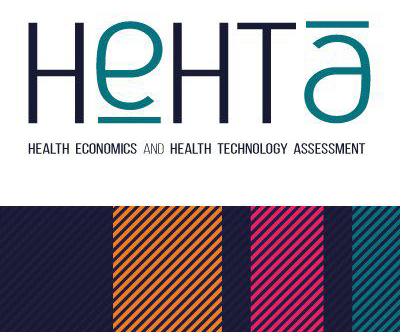Maximising the Value of Clinical Trial Data: Advanced Analysis for Economic Evaluation and Modelling

This course is a natural follow-on from advanced modelling courses and covers the fundamental concepts and practice of the key advanced analytic techniques that are required when determining appropriate approaches and estimating parameter values for cost-effectiveness models. It is also highly relevant to those seeking to improve the relevance of trial-based cost-effectiveness.
- Course dates: Our 2024/25 course has concluded. Dates for 2025/26 to be announced later.
- Flexible Online Distance Learning (ODL)
- Non-accredited, but with a certificate of attendance
Increasingly, we re-analyse trial data in order to extrapolate beyond trial time horizons, explicitly link costs and effects to clinical events, and produce estimates relevant to real life patients receiving real life treatment strategies, rather than relying on prespecified analyses focussed on inferential hypothesis testing.
In nine comprehensive sessions held over three weeks, using a combination of live lectures and hands-on tutorials, we will cover:
- Regression analysis to estimate costs and utilities based on trial data, including the use of appropriate techniques for analysing panel data with repeated measures per patient, dealing with differential follow-up, censoring, missing data and skewed data
- Survival analysis techniques including the use of parametric survival analysis, competing risks analysis, cure models, and multi-state modelling
- Treatment switching techniques such as rank-preserving structural failure time (RPSFMT), inverse probability of censoring weights (IPCW) and two stage estimation models.
- Practical exercises and solutions are provided in R Markdown, enabling a non-specialist, user friendly format which provides the embedded R code needed for analysis. Therefore, prior skills in R are not essential.
These methodologies are introduced in an intuitive way to give you the tools to apply them in practice. This course is particularly relevant to people undertaking trial based economic analyses or who want to incorporate individual patient level data into their economic models. It is ideal as a next step for people who have previously taken courses in decision analytic modelling for economic evaluation.
Faculty
- Professor Andrew Briggs, DPhil, Health Economics and Health Technology Assessment, London School of Hygiene and Tropical Medicine (Professor of Health Economics), University of Glasgow (Visiting Professor). Professor Briggs has an interest in all aspects of economic evaluation applied to health care, in particular the use of statistical methods for assessing cost and cost-effectiveness, and the use of risk/prognostic modelling for making treatment decisions and guiding policy.
- Professor James Lewsey, PhD, Health Economics and Health Technology Assessment, University of Glasgow. Professor Lewsey is a Senior Lecturer in Medical Statistics and his research interests stem from methodological challenges faced when analysing observational and experimental medical data. His current interests include competing risks and multi-state survival analysis.
- Dr Claudia Geue is a Lecturer in Health Economics and Health Technology Assessment at the University of Glasgow. Dr Geue holds a degree in Economics (2004) from The University of Potsdam, Germany and a PhD in Health Economics (2012) from the University of Glasgow, Scotland. Claudia’s research interests are in the area of data science and include the application of econometric techniques to analyse routinely collected health data to answer research questions of socio-economic and geographical patterning of healthcare utilisation and related expenditure.
- Professor Neil Hawkins holds a PhD in Pharmacology from the University of Bristol, Masters Degrees in Health Economics (York) and Applied Statistics (Sheffield), and also an MBA from the University of Oxford. He has over 17 years experience in the field of HTA and has participated in over thirty health technology assessments covering a wide variety of clinical areas. Previously he was a Reader in Health Technology Assessment (HTA) at the London School of Hygiene and Tropical Medicine, and Vice President leading the global Health Economics practice at ICON plc.
- Mr Andrew Davies is a senior health economist at the University of Glasgow. He was until recently Principal Health Economist at ICON Health Economics, and has over 15 years’ experience of cost-effectiveness modelling in health. He has lead modelling projects in a wide range of clinical areas, including cardiovascular disease, oncology, neurology, and psychiatry.
-
Professor Kathleen Boyd, PhD, Health Economics and Health Technology Assessment (HEHTA) group and Director of Research for the School of Health & Wellbeing at the University of Glasgow. She is a lead Health Economics Reviewer for the Scottish Medicines Consortium (SMC) New Drugs Committee, which directly informs decision making policy in Scotland. She has extensive experience in providing expert reviews for prestigious funding bodies such as National Institute for Health and Care Research (NIHR), Medical Research Council (MRC) and Cancer Research UK, as well as funding panel membership.
Course Structure
The course will be taught fully online through a combination of live and recorded lectures by resident and guest experts in eight comprehensive sessions over three weeks. Dates are as follows and daily sessions are not more than a half day.
Fees
- Lower and middle income countries (LMIC) £710
- Public/academic £760
- Commercial sector £1,184
Fill out our online registration form if you wish to register for this course.


